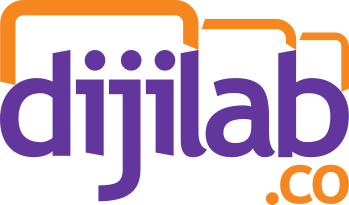Dijilab Education
Dijilab Education
At Dijilab, we take a sincere interest in your professional development and growth. We will help you expand the scope of your ambitions and provide you with the skills and confidence to turn them into reality. helps you to expand your current knowledge and explore the latest digital marketing trends while developing your own concepts of digital marketing.
Plus, you will learn through a practical and interactive teaching approach, discussing pioneering changes while developing your understanding of digital marketing concepts.
With Specialized Program in Dijilab
You will be able to;
-Design a Google Adwords campaign, defining which network is most suitable for your advertising objectives and with which segmentations. You will also need to design ads according to recommended best practices.
-Define the strategies, objectives and tactics of Relationship Marketing and how this is linked to the corresponding Digital Marketing ecosystem.
Below, you can review Dijilab’s course content on Digital Marketing, Social Media Ads and Web Analysis.
Digital Marketing Fundamentals
– Introduction to Digital Marketing and Basic Concepts
– Digital Media etc. Traditional Channels
– Digital Marketing Ecosystem
– Strategic Approaches in Digital Marketing
– Basic Advertising Models
– Multi-Channel Digital Marketing Management
– Target Audience and Competitor Analysis in Digital
– Consumer Segmentation
– KPI Determination and Introduction of Key KPIs
Digital Media Planning and Optimization
– Introduction to Content: Evolution of Content from Traditional to Digital
– Using Marketing Strategies in Digital
– Highly Interactive Digital Content Formats
– Best Tools for Trend Tracking
– Nutritional Resources for Content Continuity
– Creative Content Suggestions for Every Medium
– Finding Ideas and Positioning Methods
– Tips for Writing Popular Blogs
– Content Title Finding Techniques
– Practical Content Creation Tools
Web Analytics
-İntroducing to Web Analytics.
-Web-based Analytics and software products.
-Being aware of the different analytics tools.
-Learning Affiliate, Internet, and Referral Marketing.
-Understanding advertising using analytics.
Search Engine Optimization (SEO)
– Introduction to SEO
– SEO Definitions and Usage Reasons
– Google’s Page and Content Evaluation
– White Hat and Black Hat SEO
– Basic SEO Techniques
– Keyword Analysis and Correct Keyword Goals
– Backlinks
– SEO and Content Relationship
– Frequently Used SEO Tools and Services
– Basic SEO Mistakes
Google Ads
– Google Ads Account Setup
– Billing
– Campaign Types
– Keywords
– Ads and Extensions
– Google Auction and Quality Score
– Shopping Ads
– Formats and Targeting in Display and Video Ads
– Conversions
– Bid Strategies
Google Tag Manager
-What is Google Tag Manager?
-How to Set Up a Google Tag Manager Account
-Tags, Triggers and Variables
-How to Create a Tag
-Testing with GTM and Debugging Your Tag
-Best Extensions for GTM
Google Search Console
-Excellent Understanding of Google Search Console
-Registering Webiste for Search Console
-How to submit Sitemaps to Google Search Engine
-Monitoring website performance and inbound/outbound links
-Analyze existing or new keywords performance
-Improve user experience and monitor traffic
Google Analytics
– Google Analytics Setup
– Measurement Strategy and Implementation Planning
– Major Terms in Google Analytics
– Google Analytics Account / Property / View Structures and Settings
– Property and View Configurations
– Enhanced E-commerce Module Installation and Interpretation
– Basic and Customized Google Analytics Reports
– Integration Control Methods
– Studies and Interpretations on Google Analytics
Facebook and Instagram Ads
-Introduction to Facebook Advertising
-Using Business Manager
-Facebook and Instagram Ad Models
-Setting Targeting Options and Campaign Goals
-Bid Systems and Procurement Models
-Budget Planning
-Creating a Custom Audience
-Facebook Pixel Creation and Placement
-Facebook Conversion Creation
-URL Parameters and Pixel Tracking
-Creating Facebook Catalog
-A/B Tests in Facebook Ads
-Tips and Optimization for Effective Ads
-Ad Metrics and Reporting
-Facebook Ad Creatives
Benefits Of The Course
– You will understand the complete ecosystem of Digital Marketing.
– You will have the basic knowledge required for digital marketing and social media expertise.
– You will get comprehensive information about the digital marketing ecosystem, business models and technologies with current examples.
– You will be able to master tools such as Google Ads, Google Analytics, Facebook Ads.
– You will learn about social media management, SEO style, community building, effective advertising and campaign creation, crisis management, panel management.
– You gain categories skills in systematic, effective and result-oriented management of strategies.
– You will learn to monitor or control to take corrective actions.
360 Degree Digital Marketing
t
oday, consumers rely heavily on digital tools to learn about a product, brand or service. Digital marketing allows the product, brand or service to be advertised and met with the consumer through digital channels such as search engines, websites, social media, e-mail and mobile applications.
360-degree digital marketing enables any product, brand or service to meet the consumer by using advertising on all possible platforms. It directly reaches the target users and leads to the brand meeting with the potential customer.

To be a strong brand, you need to have a strong digital marketing strategy. For this, you must show the customer that you have a 360-degree viewpoint.
- What digital channels are your potential customers using?
- Where do your potential customers spend their time online?
- What is the customer journey to your website?
- How do you track potential customers who reach your inbox?
- How do you get feedback from sales on whether the potential customer is doing well?
The way to create the most effective marketing strategy is through 8 basic topics.
1. SEO (Search Engine Optimization)
Today, 93% of online experiences begin with search and 70% of links that users click come from results on search engine results pages. Not being featured in organic search engine results or on the first page of Google makes it difficult for your potential customers to reach your brand.
SEO helps you to gain both brand awareness and increase website traffic. It is all about making your website as visible as possible through search engines. For a strong SEO structure;
- You should optimize your titles, URL and descriptions for all pages.
- You should focus on blogging.
- You should create shareable, useful content to attract inbound links.
- You should catch the site speed that will satisfy the customer.
2. PPC (Pay Per Click Advertising)
On average, the top three paid ad spots get 41% of clicks.
PPC is a type of ad format in which the advertiser pays the publisher after the ad is clicked. These types of ads will help you drive a lot of traffic to your web page as they appear at the top, bottom or right of Google search pages. To have a strong PPC strategy;
- You should choose the appropriate campaign model and keywords.
- You should monitor your campaigns on an ongoing basis.
- You should match your negatively under-performing keywords.
3. CRM (Customer Relationship Management)
Today, 69% of people say they would recommend a company to others if they had a positive customer experience.
Strong customer communication is an essential part of the overall digital marketing strategy. Satisfying and retaining your customers will keep them in the limelight with your products and services for a long time. To keep your communication with your customer strong;
- You should ask your customers how they are finding your product or service.
- You should respond to customer complaints and issues.
4. Outbound Email Campaigns
Today, 91% of consumers check their email daily which means that you should be including outbound email campaigns in your digital marketing strategy.
In order for your brand to gain an edge over the competition, it must take advantage of all digital marketing avenues. Outbound email campaigns are a great way to connect with existing customers, build trust and develop relationships with potential customers. By combining online and offline data they allow you to feed potential customers with customized and personalized content that addresses their trouble spots directly. For a strong outbound email campaign;
- You should make personal touches. Rather than mailing to a certain community, there will be much more positive feedback from mailing made in honor of the person.
- You should avoid scattergun approach.
5. Lead Management
Today, 79% of marketing leads never convert to sales, with a lack of lead management the most common cause for this poor performance.
Lead Management is a process where your website visitors become your leads, your loyal customers. When you ask the right questions about your brand using fun ways such as surveying, you increase your chances of making your loyal customers the lead. It’s about getting the best possible return from every possible sale while creating lead. In order to generate best possible results;
- You should do marketing automation to make it easier for you to create nurture campaigns.
- You should understand your typical buyer journey.
- You should try to avoid aggressive sales pitches with your communications.
6. Social Media
Today, B2C brands are active on 58% LinkedIn, 75% Twitter, 96% Facebook, 54% YouTube and 51% Instagram social media to increase their awareness.
Social media is the most effective strategy in digital marketing. Various social media platforms, if used in the right ways, make it easier to reach existing and potential customers to increase brand awareness. To make effective your social media marketing;
- You should have a solid plan.
- You should create content from other websites and blogs in your industry.
- You should reply every comment and messages, especially negative ones.
7. Content Marketing
Today, 63% of content marketers agree that content provides positive ROI. It’s a marketing tool that involves creating, publishing, distributing content for potential client. It is the best way to increase your brand awareness, drive organic traffic and acquire new customers. To create an effective content marketing strategy;
- You should make sure your chosen medium is aligned to your goals.
- You should ensure your content’s continuity after creating it.
8. Website
Today, 40% of the people abandon a website if it takes more than three seconds to load.
As a business, you should remember that the ultimate goal of all your digital marketing campaigns is your website. No matter how good your products or your reputation are, if the user does not get a quality experience from your website, there will be no conversion. To create a useful website;
- You should make it easy for people to get where they need to go once they land.
- You should provide an initial intro to your product or service.
- You should build a responsive design.




